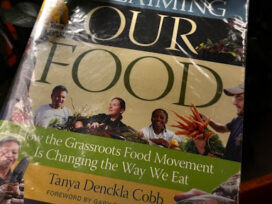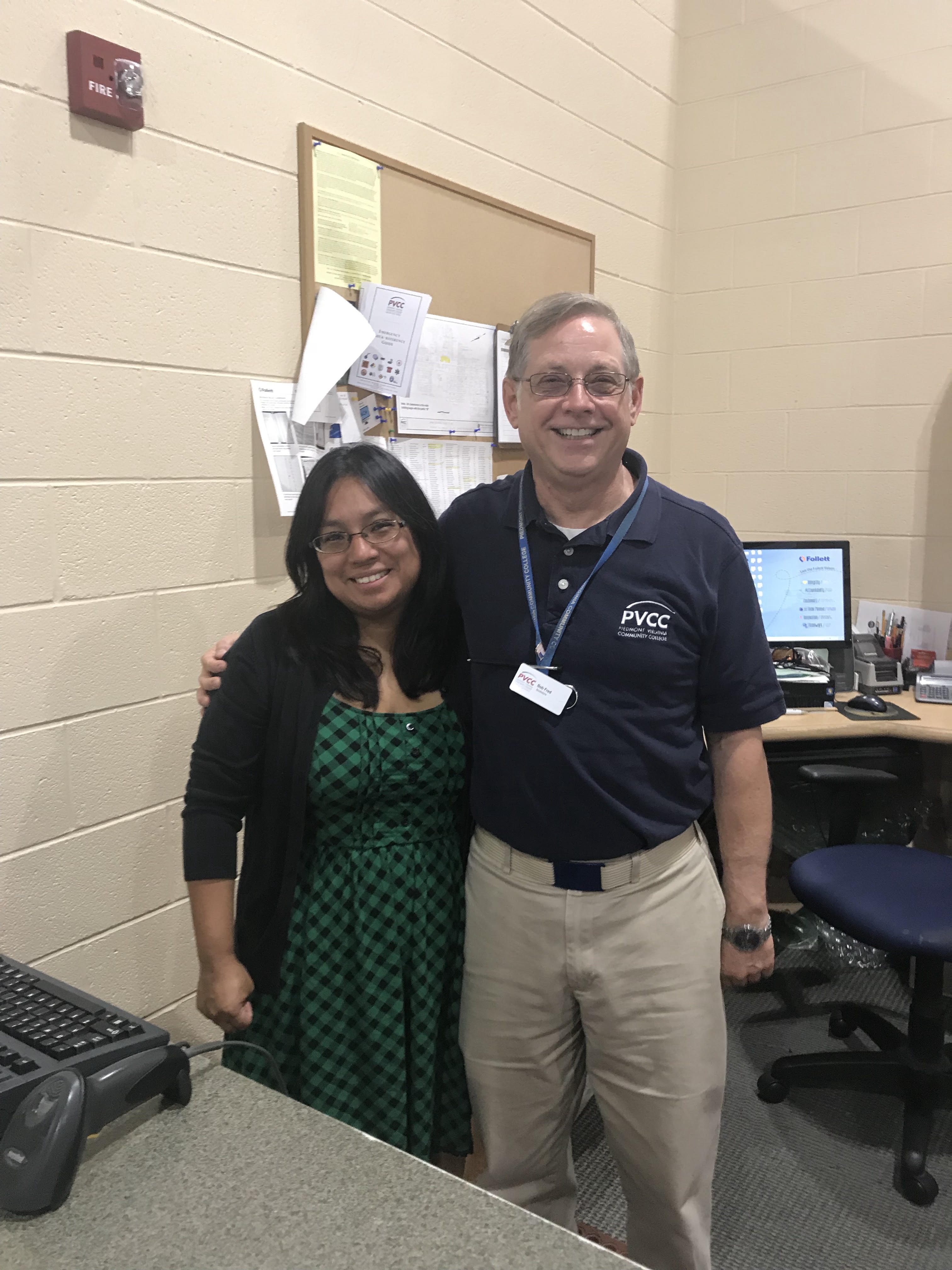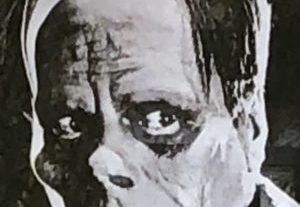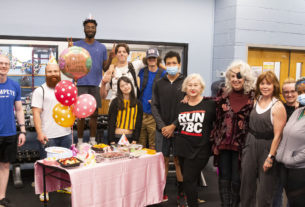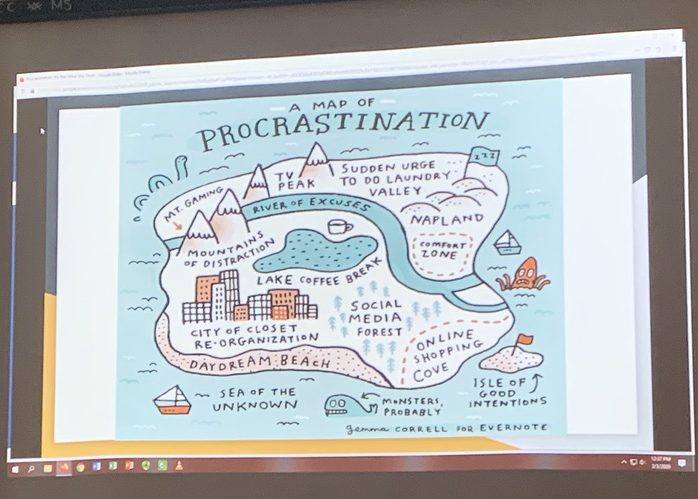
Why can’t I finish this paper?
Is it hard to get your work done? Do you procrastinate? It seems in this time of social distancing and staying at home, procrastination may be a problem many of us are facing. Sarah Surratt, adjunct instructor of student development and academic coach, recently hosted a workshop titled “Procrastination, It’s Not What You Think.”
As part of the workshop, we developed our “to do list.” We were asked to make a list of everything we needed to accomplish in the next 48 hours. Megan, a workshop attendee, said, “I already made a list; my problem is getting started.” This sentiment was echoed with many of the other participants.
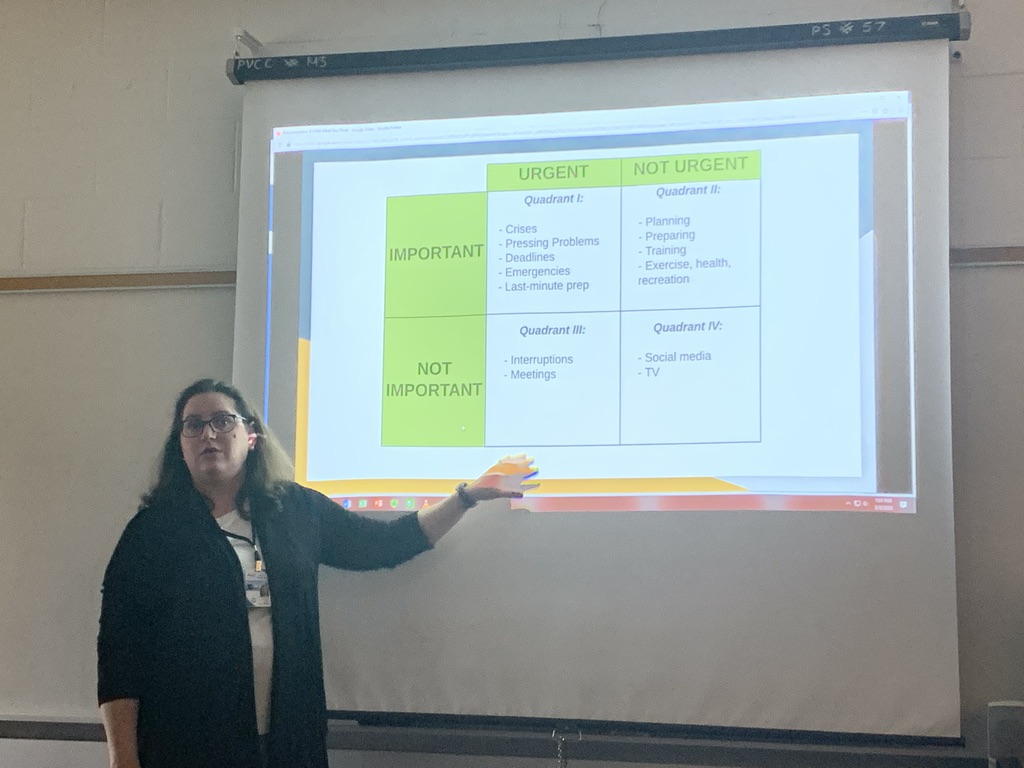
To address this concern, we watched a TEDX Talk with Mel Robbins, (Mel Robbins is an American television host, author, and motivational speaker.) She suggested that “Procrastination is a form of stress relief and becomes a habit.” Robbins believes that there are three main steps to procrastination, “First you have a stress trigger, then, you avoid what you need to do, then the reward is a stress relieving habit, ie. watching kitten videos.”
To stop the habit of procrastination, once you feel the stress, acknowledge your stress, try to count to five, and then work for just five minutes. Robbins said, “Just work for five minutes. Studies show that once you start, you are more likely to continue and finish.”
With this as our background, we went back to our “to do list.” We divided the items into two categories: Urgent and Not Important. Surratt said, “Take the list of urgent tasks and make a plan on how you will accomplish them. With the not important list, decide whether you even need to have them on a list.”
Once you have identified the tasks of the next 48 hours and have a plan on accomplishing them, Surratt encouraged everyone to get an accountability partner. You create a check in schedule with your partner to make sure you are completing your tasks. An accountability partner can hold you accountable for the tasks you need to accomplish, and make you more successful.
When you begin the journey of accomplishing your tasks, you should develop a calendar and make a schedule. Robbins said, “Successful people work on a schedule, work towards consistency in their day to day to accomplish more.”
So, if you are having a hard time finishing that paper, try to count to five and just work for five minutes…more than likely, you will finish it!



